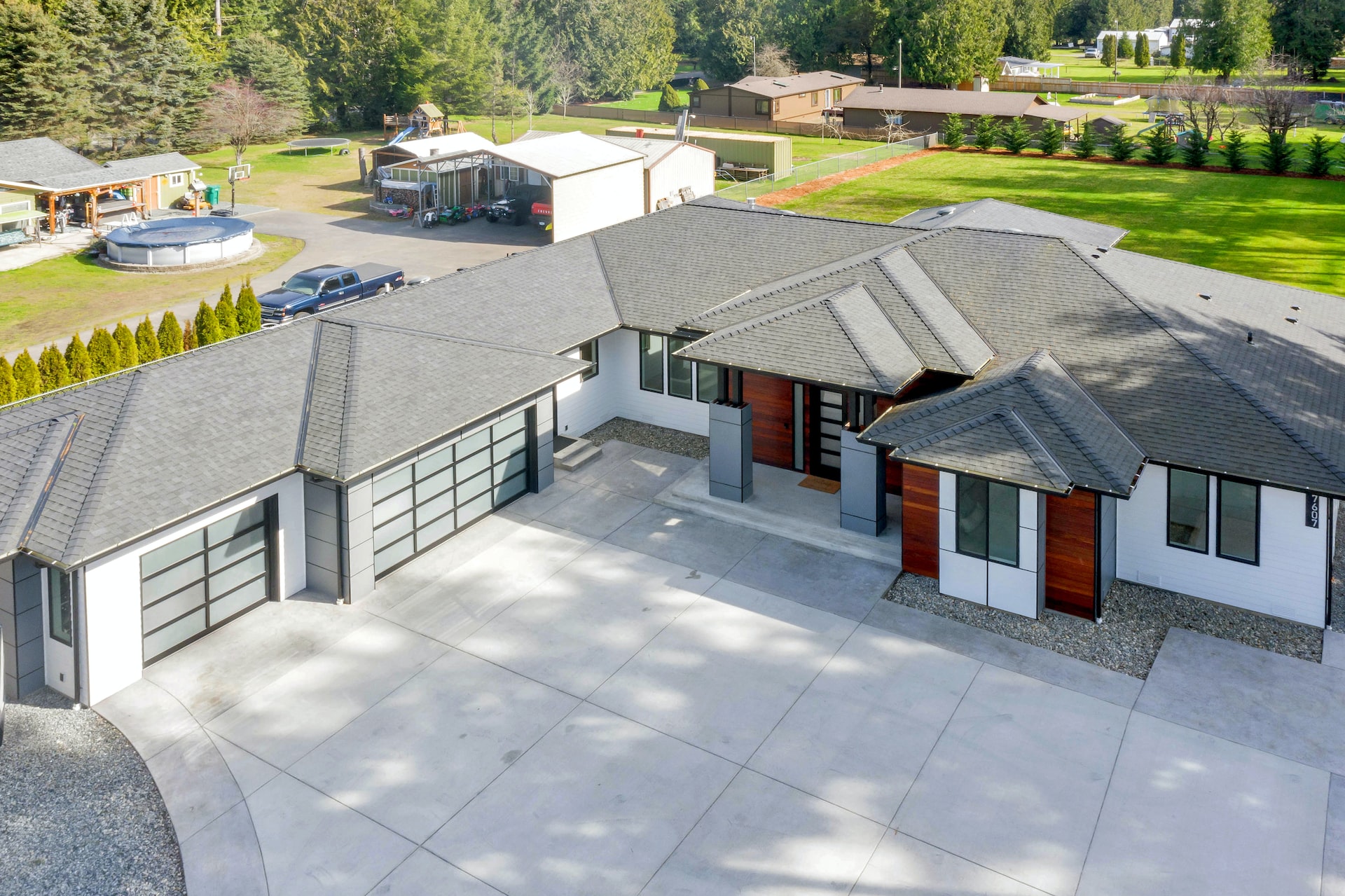Shopping for the home of your dreams is an exciting process. But first, you’ll need to secure financing if you aren’t planning to pay cash prior to starting your home search. When shopping around, you’ll quickly notice there are several options to choose from. However, a jumbo loan may be necessary if you’re considering a luxury home or a property that’s located in a high-cost area.
What is a Jumbo Mortgage?
As the name implies, a jumbo mortgage is a home loan for a large amount. To determine what constitutes a jumbo loan, though, you must refer to the conforming loan limits established by the Federal Housing Finance Agency (FHFA). If the figure for your area is lower than the loan amount you’re seeking, you’ll need a jumbo loan that doesn’t conform to FHFA standards.
Conforming loans provide protections that don’t extend to non-conforming loans, like jumbo mortgages. However, you should also know that the guidelines for jumbo loans are often more stringent since they pose a greater risk to lenders.
How Does a Jumbo Mortgage Work?
Jumbo mortgages operate like conventional home loans. You’ll generally get a fixed or variable-rate mortgage with a term of 15, 20 or 30 years. Over the loan term, you’ll make monthly payments that include principal and interest until the loan is paid in full.
Jumbo vs. Conforming Mortgages
Below is a breakdown of how jumbo loans differ from conventional or conforming mortgages.
Type of Property
Like conventional loans, jumbo loans can be used to purchase your primary home or a second property that’s used as a vacation home or rental property. You can also refinance an existing property to pull out equity or to get a better interest rate and more affordable monthly payments.
Limits
In most areas, the conforming loan limit is $726,200 for a single-family home. However, it increases to as much as $1,089,300 in certain high-cost areas, including Alaska and Hawaii. Any home loan above this amount would be categorized as a jumbo loan, and you wouldn’t be eligible for a conventional home loan product.
Rates
Before the most recent set of interest rate hikes, jumbo loans had much steeper interest rates than conventional loans due to their riskiness. However, the rates are now comparable in many instances, and some lenders are offering even lower interest rates on jumbo loans to well-qualified homebuyers.
Down Payment
Jumbo loans typically come with a down payment requirement of 10, 15 or 20 percent, depending on the mortgage provider. But you can get a conventional mortgage with a down payment as low as 3 percent.
Closing Costs and Other Fees
On average, closing costs range from 3 percent to 6 percent of the property value. You can expect higher closing costs and fees with jumbo loans, though, as they often require more underwriting and legwork from the lender before a loan decision is made.
Who Should Consider a Jumbo Mortgage?
If you’re in a high-price market or looking to buy a luxury property and need a home loan, a jumbo mortgage may be your only option. That said, the best candidates are typically categorized as HENRY, or high earners, not rich yet, and earn between $250,000 and $500,000 a year. They also possess strong credit histories and have reasonable debt loads.
Before applying, check your credit to gauge if it needs more work or if it’s good enough to qualify you for the most competitive rates. It’s equally important to run the numbers to confirm you can comfortably afford the monthly mortgage payments. Otherwise, it’s best if you search for a more affordable option or hold off on buying until your earnings increase or market conditions change.
Are There Special Requirements for Jumbo Mortgages?
- Credit history: You’ll generally need a credit score of at least 700 to qualify for a jumbo mortgage. It’s equally important that your credit history is free of collections, charge-offs, bankruptcies, foreclosures, tax liens or other adverse items to have the best chance of getting approved for a jumbo mortgage. If there are adverse credit items on your credit report, they should meet the lender’s seasoning requirements if you want to be considered for a jumbo home loan.
- Debt load: Your debt-to-income (DTI) ratio also plays a vital role in if you’ll be approved for a jumbo mortgage. It’s the amount of monthly income that’s used to cover outstanding debt obligations. Ideally, this figure should be no more than 45 percent. So, if your monthly earnings before taxes are $7,000, your monthly debt payments should not exceed $3,150. Be mindful that a stellar credit score or higher down payment may give you more flexibility with the DTI threshold. (Quick note: If there are other compensating factors, like an exceptional credit score or hefty cash reserves, the lender may allow a DTI of up to 50 percent. In this case, your minimum monthly debt payments shouldn’t exceed $3,500 using the example above).
- Income requirements: Two years of steady employment and income documentation, including W-2s, 1099s, or tax returns, are often enough to secure a conventional loan. However, you may need to provide even more documentation to the lender to demonstrate that your income will remain consistent for years to come when applying for a jumbo mortgage.
- Cash reserves: Many lenders require borrowers to have up to 12 months of mortgage payments in the bank to qualify for a jumbo mortgage. An adequate amount of cash reserves gives the lender reassurance that you can keep up with the monthly mortgage payments should financial hardship arise.
- Manual underwriting: As mentioned above, the application review process is more involved with jumbo mortgages. This is a result of manual underwriting, which involves a thorough review by an underwriter who analyzes your financials and credit history to determine if you are a good candidate for a jumbo mortgage or pose too much of a credit risk.
How to Apply for a Jumbo Mortgage
Jumbo mortgages are available through traditional banks, credit unions and some online lenders. When you’re ready to apply, start by researching several lenders. Then, retrieve loan quotes from your top three selections and compare the offers to determine which offers the best deal and is most suitable for your financial situation.
The next step is to formally apply for a jumbo mortgage. But before you complete the application, reach out to the lender and ask what they’ll need to move the review process forward. Again, prepare this information before applying to avoid processing delays.
Once you fill out the loan application, review the contents for accuracy and completeness before submitting. Also, make sure you’ve uploaded any documents the lender needs. And if other requests arise during the review process, be sure to address them promptly to move the underwriting process along.
Where to Get a Jumbo Mortgage
If you’re ready to move forward with purchasing a home and need a jumbo mortgage, consider Angel Oak Mortgage Solutions. It’s a reputable full-service mortgage lender offering innovative home loan solutions with competitive terms.
There are three jumbo loan options available:
- Gold Prime Jumbo: These jumbo loans are capped at $3.5 million and require a down payment as low as 10 percent and a DTI of no more than 50 percent. You can use the loan proceeds to buy a primary home, second home or investment property. Cash-out and rate-term refinances are also permitted.
- Prime Jumbo: You can borrow up to $3 million for a purchase, rate-term refinance, or cash-out refinance with a Prime Jumbo Loan. They can also be used to buy or refinance primary homes, secondary homes or investment properties.
- Non-QM Platinum Jumbo: The loan limit is $3 million for Non-QM Platinum Jumbo Loans, and you could get approved with just one year of tax returns. Like the two other jumbo loan offerings, purchase and refinance loans are available. Furthermore, the seasoning period for adverse credit items, including foreclosures, bankruptcies, short sales and deeds-in-lieu, is just four years.
If none of these work for you, Angel Oak Homes Loans also features other mortgage products that could be a better fit.
Inquire today using the online form to learn more about how Angel Oak Mortgage Solutions can assist you with your lending needs.







